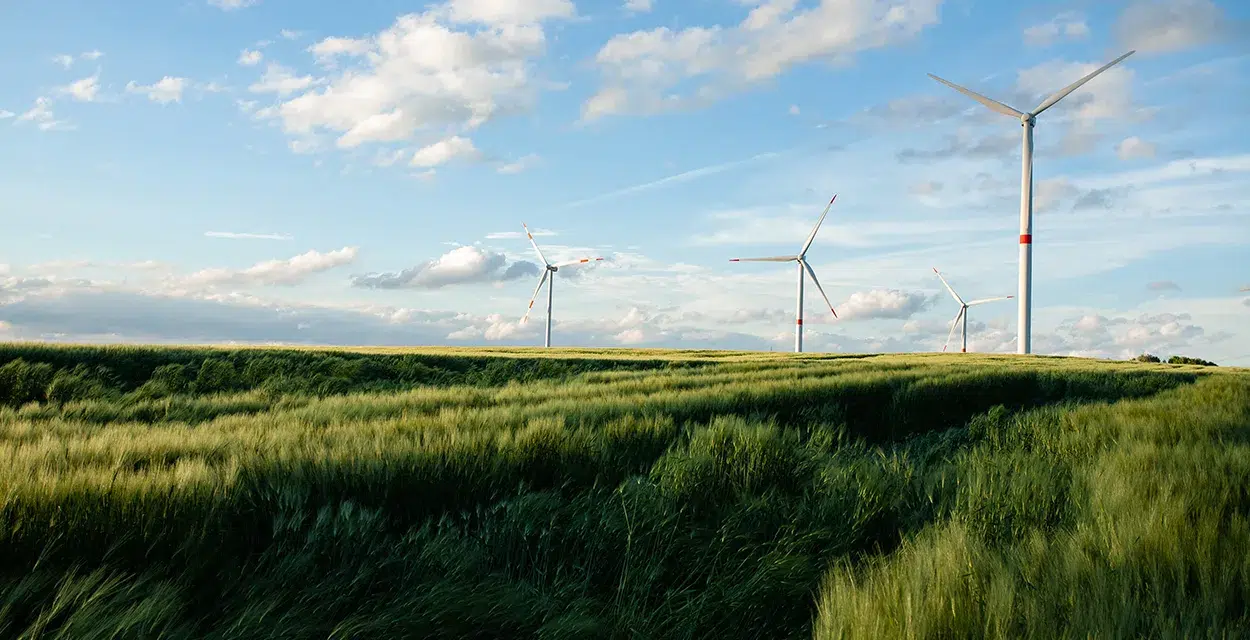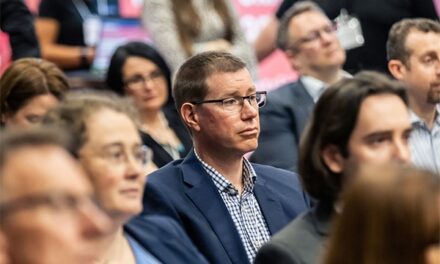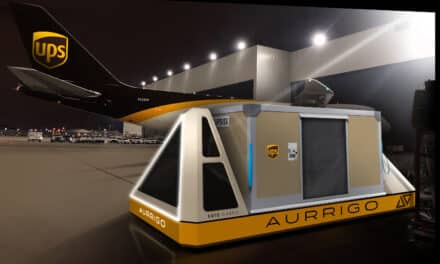Net Zero Pioneers, an exclusive new report created by BusinessGreen featuring 50 cutting-edge businesses that are accelerating the development of a net zero emission economy, launches today.
The Net Zero Pioneers report showcases the UK’s most innovative and impactful businesses working on the UK’s net zero transition, profiling the myriad ways in which they are working to turbocharge decarbonisation efforts in every corner of the economy. From energy and transport to industry and agriculture, from the emerging carbon removals sector to the evolving circular economy, from blue chips with centuries of heritage to start ups with nothing but a good idea and a dream of greatness, every corner of the UK business community contains pioneers who are mobilising to lead the pursuit of the UK’s net zero goals.
Commissioned by the Net Zero Festival – which takes place from 31st Oct – 1st November 2023 at the Business Design Centre, Islington, the new report provides an invaluable insight into the breadth and reach of the innovation and investment that is turbocharging efforts to deliver on both corporate and economy-wide net zero goals.
At a time when the UK’s net zero transition is under fire from some high-profile critics, the Net Zero Pioneers report provides an invaluable snapshot of the vibrant innovation ecosystem that is serving to catalyse the green economy and how these companies are playing a critical role in both accelerating progress toward net zero emissions and bolstering UK competitiveness.
Advertisement
James Murray, co-founder of the Net Zero Festival, said: “With the recent government rollback of key net zero policies, it is more important than ever to showcase the many brilliant businesses that are making remarkable strides to deliver net zero emissions across multiple sectors and industries. The Pioneers Report seeks to celebrate their efforts and demonstrate how the commitment to climate goals and targets is helping to drive the development of exciting new technologies and business models that will deliver multiple benefits to both individual consumers and the UK economy as a whole.”
The Top 50 businesses featured in the inaugural Net Zero Pioneers report are:
Carbon Removals
- OCO Technology: One of the few aggregates manufacturers in the world that make aggregates from captured CO2 and waste materials, promising to deliver ‘negative emissions’ in the process.
- DarkBlack Carbon: The start-up’s two co-founders have built a pyrolysis machine which can produce up to 1,500 tonnes of biochar each year at full capacity.
- Highlands Rewilding: restoring habitats, forests, peatland, and marine environments across Scottish estates, and – crucially – selling nature-based carbon credits.
- UN DO: Removing one billion tonnes of carbon from the air by 2030 through enhanced rock weathering, a process where the Earth’s natural carbon sequestration cycle is fast-tracked through the spreading of crushed volcanic rock on soil.
- BeZero Carbon: The team of climate scientists, earth observation specialists, data experts, and financial analysts work to provide up-to-date analysis and ratings for the millions of carbon credits issued around the world.
Retail and Consumer Goods
- Lucy & Yak: One of the fastest growing companies in the UK that only uses organic materials and recycled fabrics in its range, which includes jeans, jumpsuits, and loungewear.
- The Body Shop: Since its 1976 launch by Dame Anita Roddick, The Body Shop has grown from selling skincare products in refill bottles from a single Brighton branch into a global retail business serving some 30 million customers across 3,000 locations.
- Toast Ale: Established in 2015 by food waste campaigner Tristram Stuart, the social enterprise brews its award-winning beer using surplus bread in the brewing process, resulting in less land, water, and energy use and therefore lower greenhouse gas emissions.
- Notpla: The true solution to the plastic crisis lies in sustainably farmed seaweed. From a dissolvable, edible ‘bubble’ which holds liquids to seaweed-based film and paper, all the company’s packaging products are made out of plants – and all are biodegradable. The company has secured VC-backing to the tune of £16m and won the Prince of Wales’ Earthshot Prize, which awards £1m to winners.
- Sainsbury’s: The company recently opened its greenest, ‘most energy efficient supermarket ever’ in Hampshire, showcasing a raft of technologies that promise to halve energy use and enable a switch to 100 per cent renewables.
Industry and Supply Chains
- Carbon Clean: The firm’s carbon capture technology has been deployed at just shy of 50 industrial sites around the world, from oil and gas refineries to steel plants and cement manufacturing facilities.
- British Lithium: The UK is set to get its first lithium mine, courtesy of the team at British Lithium. After years of finessing a technique for extracting battery-grade lithium from Cornwall’s granite bedrock, the start-up hit the big time in June, in the form of a major investment from its long-time partner, French mining company Imerys.
- CCm Technologies: The firm’s elegant circular economy solution makes low-carbon fertiliser pellets from a tangy mix of waste materials, combining carbon captured from anaerobic digesters (ADs) with fibrous material from food waste and sewage sludge and ammonia and phosphates recovered from wastewater from homes and farms.
- Carlton Power: No less than three of Carlton Power’s green hydrogen production projects were shortlisted for public funding last Spring, a milestone that prompted clean energy investor Schroders Greencoat to pull out its checkbook.
- Carbon Capture Scotland: Drawing from experience producing low-carbon dry ice pellets at scale from existing biogas plants, the company has now embarked on a mission to capture the carbon removal industry, both in Scotland and further afield.
Agriculture and Nature
- Riverford Organic Farmers: A pioneer in a sector that promises to slash emissions and enhance environmental sustainability across the agricultural and food sectors. The company is now a multi-million-pound operation, with sales of Riverford veg boxes reaching 85,000 a week in 2020.
- Fischer Farms: A vertical farming business aiming to play their part in easing pressure on the food system by harnessing hydroponic technologies and ultra-efficient lighting to grow crops indoors.
- Ivy Farm: Founded by Russ Tucker , a former supermarket consultant hailing from generations of farmers and butchers, is now leading one of Britain’s leading lights in the brave new world of cultivated meat.
- Compass Group: Compass Group’s efforts to promote more sustainable, seasonal, local, and often plant-based food could yet play a significant role in delivering on the UK’s net zero goals.
- Wildfarmed: Founded by one-half of Grammy-winning hitmakers Groove Armada, & radio and TV presenter George Lamb in 2018, Wildfarmed aims to provide a new route to market for cereal crops grown using regenerative farming practices.
Finance and Investment
- Triodos Bank UK: Sustainable bank Triodos’ cheque book may be relatively small compared to the sector’s High Street giants, but it packs mighty punch when it comes to its impact on the UK’s green economy.
- Ecology Building Society: Abuilding society focused on environmentally responsible building renovations.
- Aviva: The insurer has doubled down on its promise to steer a path towards a nature-positive, low-carbon economy.
- Green Angel Ventures: Describing itself as the UK’s “largest network of specialist investors fighting climate change”, it connects ambitious climate start-ups with high net worth individuals looking to make money while protecting the planet.
- Sustainable Ventures: A firm that is part early-stage investor, and part specialist green workspace operator, Sustainable Ventures has left an indelible mark on the UK’s clean tech ecosystem.
Transport
- Wrightbus: If you’ve traveled on a hydrogen fuel cell or electric bus in the UK, there’s a high chance it was manufactured at Wrightbus’ Ballymena factory. Over the last five years, the Northern Irish bus manufacturer has transformed itself into something of a zero-emission mobility powerhouse.
- Velocys: The Oxford-based company has developed an uber-compact Fischer-Tropsch reactor that can create biofuel from household and municipal waste and forest residues.
- Gridserve: Reinventingthe motorway service station for the 21st century, the company’s growing network of solar-powered ‘electric forecourts’ are designed to trounce preconceptions about slow, glitchy charging infrastructure and entice more motorists to go electric.
- ZeroAvia: One of the leading lights in the development of hydrogen-electric aircraft, having already flown several successful test flights for prototypes of its zero-carbon propulsion system in the skies above the Cotswolds.
- Zedify: Operating in 10 cities and with plans to expand further in the coming months, the firm claims to have the largest e-cargo bike delivery network in the UK with its extensive fleet of electric cargo bikes, trikes, and quads carrying out thousands of zero emission deliveries for businesses and individuals each day.
Waste and Circular Economy
- The Seam: A digital platform for users to book repair services for the most loved items in their wardrobe – assigning them with a maker from a vetted network of tailors, cobblers, and repair specialists.
- Systemiq: The self-described “systems change company” only works on projects that promise to transform markets and business models. Its broad mission is to accelerate delivery of the Paris Agreement and UN Sustainable Development Goals by focusing on five priority areas: nature and food, materials and circularity, energy, urban areas, and finance.
- Matter: The company’s microplastic-busting solution has captured the attention of investment funds backed by Ashton Kutcher, Leonardo DiCaprio, and Madonna’s manager, Guy Oseary. Matter is on a mission to scrub toxic microplastics from waste streams by tackling an easily ignored source of plastic waste: washing machines. The company claims its microplastic filtration technology – named Gulp – catches up to 90 per cent of the micro-pollutants dislodged from clothes.
- Olio: With more than 100 UK-based staff, almost 100,000 global volunteers, food waste company Olio has evolved into a circular economy platform to share items ranging from clothes, books, and furniture to toiletries and electrical goods – with eight million household items redistributed to date. The platform is also making moves into the burgeoning carbon credits market.
- Cory: The firm now characterises itself as a circular economy pioneer raring to play a vital role in delivering a net zero emission economy.
Buildings and Infrastructure
- Grosvenor: Last year, the family-owned business became the first European property firm to secure approval for a net zero goal from the Science-Based Targets initiative, with its commitment to cut emissions right across its business and value chain in half by 2030, and by at least 90 per cent by 2040.
- Satellite Vu: As one of the UK’s most exciting sustainability start-ups, Satellite Vu has secured tens of millions of pounds from investors in support of its plan to operate a constellation of satellites capable of tracking data critical to tackling climate change.
- Whitbread: As one of the UK’s largest hospitality groups, the firm’s commitment to fully decarbonising its entire estate represents a huge opportunity to not only make a major dent in its own greenhouse gas emissions, but also catalyse the wider market for low carbon building solutions.
- GPE: Great Portland Estates (GPE) is one of the larger property developers leading change in the real estate sector. The FTSE 250 firm is now redeveloping the 2 Aldermanbury Square in the Square Mile into another net zero office building – but this time it is also taking pioneering strides to minimise the 13-storey development’s embodied carbon.
- Concrete4Change: Award-winning UK start-up Concrete4Change is focused on turning concrete not just into a low carbon material, but a means of permanently storing captured CO2.
Renewables
- Ripple Energy: A pioneer in three separate fields, combining crowdfunding, renewables development, and green energy supply to become one of the UK’s most innovative and exciting energy companies. The company’s unique business model allows consumers to fund renewable energy development and connect with the green power they are using, building awareness of climate action and catalyzing wider decarbonisation efforts.
- Kensa Group: Established by a pair of marine engineers who had spent years installing heat pumps on luxury yachts, the firm is now the leading producer of ground source heat pumps in Britain. Its flagship manufacturing facility in Truro produces 30,000 ground source heat pumps annually.
- Naked Energy: The company has designed its Virtu solar products with an eye on generating both cost effective, zero carbon heat and renewable electricity.
- Hywind Scotland: The UK is a frontrunner in what is a hugely exciting industry, with as much as 40 per cent of the country’s current offshore wind pipeline comprising floating wind project – and Hywind Scotland is at the heart of innovation in the sector.
- SIMEC Atlantic Renewables: Tidal power may have a long way to go before it can claim to be making a dent in climate goals, but the potential offered by a predictable, scalable, zero emission energy source is enormous. SIMEC Atlantis Energy (SAE) Renewables is among a small group of pioneering businesses looking to turn that potential into reality.
Energy Systems
- Ovo Group: Launched with a mission to shake up the UK’s energy market, Ovo is now one of the UK’s largest energy suppliers, with more than three million electricity and two million gas customers on its books.
- Highview Power: One of the world’s leading developers of compressed air long duration energy storage technology. The company’s pioneering technology uses excess renewable power to freeze air, effectively storing energy for as long as required before then feeding power back into the grid during those periods when the wind isn’t blowing or the sun isn’t shining.
- Octopus Energy Group: One of Britain’s most exciting clean energy business success stories. The company is established as one of the UK’s largest energy suppliers, with over 5.3 million UK customers.
- Gravitricity: The idea behind Gravitricity is refreshingly simple. On a basic level, it involves connecting a generator to heavy weights which are lifted upwards to store electricity, and then later dropped back down again to release that energy back to the grid when desired.
- Flexitricity: Flexitricity has spent the last few decades demonstrating that balancing a renewables-dominated grid is not only feasible, but it can unlock significant financial benefits for businesses.












